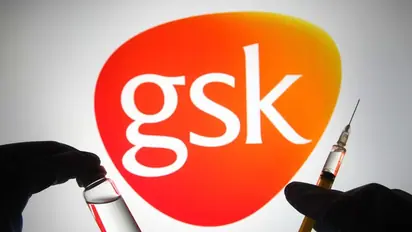UK approves GlaxoSmithKline drug to treat COVID, company says it's effective against Omicron variant

Synopsis
Sotrovimab has been shown to be safe and effective in lowering the risk of hospitalisation and mortality in patients with mild to moderate COVID-19 infection.
British authorities on Thursday authorised a GlaxoSmithKline medicine to treat those at high risk of getting severe Covid-19 symptoms, with the maker claiming that it looks to be effective against the new Omicron strain. Sotrovimab has been shown to be safe and effective in lowering the risk of hospitalisation and mortality in patients with mild to moderate COVID-19 infection who are at high risk of developing severe disease, reported the Medicines and Healthcare products Regulatory Agency.
According to GlaxoSmithKline, preclinical findings demonstrate that the medicine "retains efficacy against major alterations of the novel Omicron SARS-CoV-2 strain." The company stated that the drug had shown ongoing activity against all tested variants of concern and interest identified by the world health body. It further stated that testing is currently underway to confirm sotrovimab's neutralising activity against the combination of all Omicron mutations, with an update expected by the end of 2021.
According to the MHRA, a single medicine dosage reduced the risk of hospitalisation and mortality by 79% in high-risk persons with symptomatic COVID-19 infection. Sotrovimab was created by GSK in the United Kingdom and Vir Biotechnology in California. It is a monoclonal antibody, a kind of protein that binds to the coronavirus's spike protein, decreasing the virus's capacity to penetrate the body's cells.
Also Read | Bharat Biotech in partnership with GSK to produce world's 1st malaria vaccine approved by WHO
In other news, Bharat Biotech will develop the world's first malaria vaccine, authorised by the World Health Organization. Malaria is a mosquito-borne illness that kills over 400,000 people each year, the vast majority of whom are African children. According to sources in the know, the malaria vaccine produced by global pharmaceutical giant GlaxoSmithkline as part of worldwide efforts to combat the fatal fever would take at least 2-3 years to market.